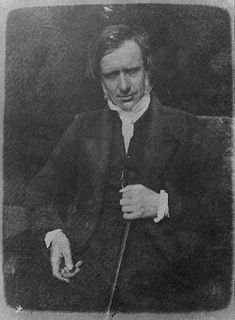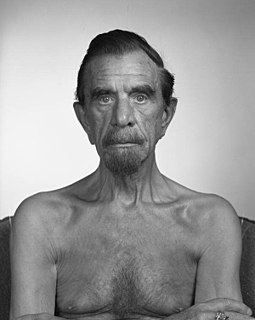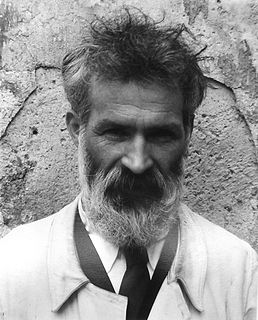A Quote by Auguste Rodin
The artist is the confidant of nature, flowers carry on dialogues with him through the graceful bending of their stems and the harmoniously tinted nuances of their blossoms, Every flower has a cordial word which nature directs towards him.
Related Quotes
Every object in nature is impressed with God's footsteps, and every day repeats the wonders of creation. There is not an object, be it pebble or pearl, weed or rose, the flower-spangled sward beneath, or the star-spangled sky above, not a worm or an angel, a drop of water or a boundless ocean, in which intelligence may not discern, and piety adore, the providence of Him who took our nature that He might save our souls.
I understood that every flower created by Him is beautiful, that the brilliance of the rose and the whiteness of the lily do not lessen the perfume of the violet or the sweet simplicity of the daisy. I understood that if all the lowly flowers wished to be roses, nature would no longer be enamelled with lovely hues. And so it is in the world of souls, Our lord's living garden.
All the lies and evasions by which man has nourished himself civilization, in a word is the fruits of the creative artist. It is the creative nature of man which has refused to let him lapse back into that unconscious unity with life which characterizes the animal world from which he made his escape.
... the first thing his education demands is the provision of an environment in which he can develop the powers given him by nature. This does not mean just to amuse him and let him do what he likes. But it does mean that we have to adjust our minds to doing a work of collaboration with nature, to being obedient to one of her laws, the law which decrees that development comes from environmental experience.
There is a time in every man's education when he arrives at the conviction that envy is ignorance; that imitation is suicide; that he must take himself for better, for worse, as his portion; that though the wide universe is full of good, no kernel of nourishing corn can come to him but through his toil bestowed on that plot of ground which is given to him to till. The power which resides in him is new in nature, and none but he knows what that is which he can do, nor does he know until he has tried.
The best thing is to go from nature's God dawn to nature; and if you once get to nature's God, and believe Him, and love Him, it is surprising how easy it is to hear music in the waves, and songs in the wild whisperings of the winds; to see God everywhere in the stones, in the rocks, in the rippling brooks, and hear Him everywhere, in the lowing of cattle, in the rolling of thunder, and in the fury of tempests. Get Christ first, put Him in the right place, and you will find Him to be the wisdom of God in your own experience.






































